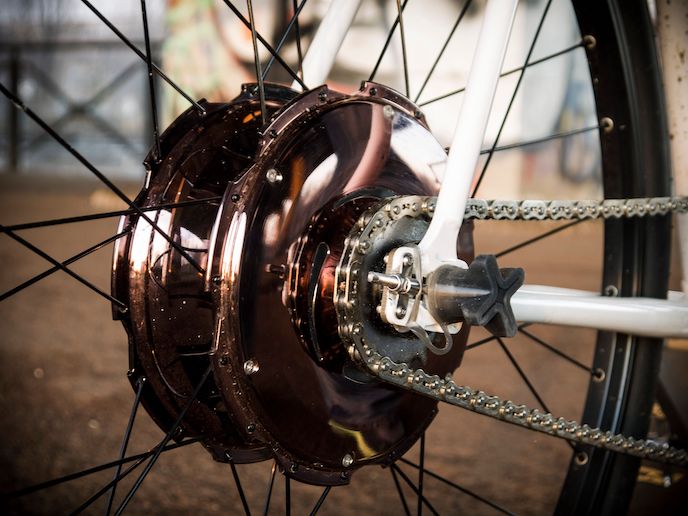Self-powering e-bikes could drive bike-sharing forward
Since the first large-scale initiatives were launched in Copenhagen and Portsmouth in 1995, bike-sharing schemes have spread to more and more European cities. The rise has been helped along by advances in technology plus a growing appreciation of the environmental benefits. But some stubborn issues remain. Third generation bike-sharing schemes such as Vélib’ in Paris or Bicing in Barcelona are based on a network of docking stations placed around the city where users pick up and leave their bikes. Building and maintaining these installations can account for between 70 % and 80 % of the costs of a scheme. EU-funded project BITRIDE BIKE SHARING, run by Italian smart mobility start-up Zehus, has developed a fleet of hybrid, self-powering bikes which promises to overcome some of the issues that hold such schemes back. The BITRIDE BIKE SHARING solution consists of a hub on the rear wheel of the bike which contains a motor, batteries, electronics and sensors in a single unit weighing three kg. The motor acts like a dynamo – charging itself as the bicycle goes along. “It gives you power as you go uphill and when you start from a traffic light, but it generates power when you go downhill, when you brake or when you go at constant speed,” says Mr Giovanni Alli, after-sales manager at Zehus. Self-sufficient bikes Being self-powering means smaller, cheaper but still good quality batteries and no need to plug in the bike for charging. “There have been tests of electrification of bike-sharing schemes in the past but they were not sustainable due to the cost of battery packs,” says Mr Paolo Lisanti, CTO at Zehus: “We tried to fix this with our technology which includes a motor which charges in a really efficient way.” Surplus energy generated by the motor has been harnessed to create value-added services. A set of four sensors turns on LED lights to signal stopping or left or right turns, thus improving safety. It also powers a tracking device which not only indicates the position of the bike but can also alert to unusual behaviour by cyclists and help reduce vandalism and theft. This is backed up by a locking device which can be activated remotely. No need to dock Having trackable bikes eliminates the need for physical docking stations, the biggest cost for conventional schemes. Instead cyclists can leave the bikes inside designated areas of the city, known as virtual parking stations (VPSs). In some cities, what is known as ‘free floating’ parking for e-bikes has caused problems as cyclists may dump bikes anywhere and end up blocking pavements and generally misusing public space. “Our mobile app can understand if the bike is inside the VPS so it will allow you to lock the bike, otherwise it will invite you to go to a VPS,” says Mr Lisanti: “If someone dumps an unlocked bike, there can be penalties.” A survey of users of a 350-bike pilot in Milan in 2018 found that 82 % wanted to continue using the service, while 60 % described the bike in hybrid mode as either comfortable or very comfortable. Zehus is now preparing for commercial launch of the system and is in talks with Italian train operator Ferrovie Nord about launching an integrated train-bike service in the Lombardy region.
Keywords
BITRIDE BIKE SHARING, hybrid bikes, smart bikes, self-powering e-bikes, free-floating parking, virtual parking stations



